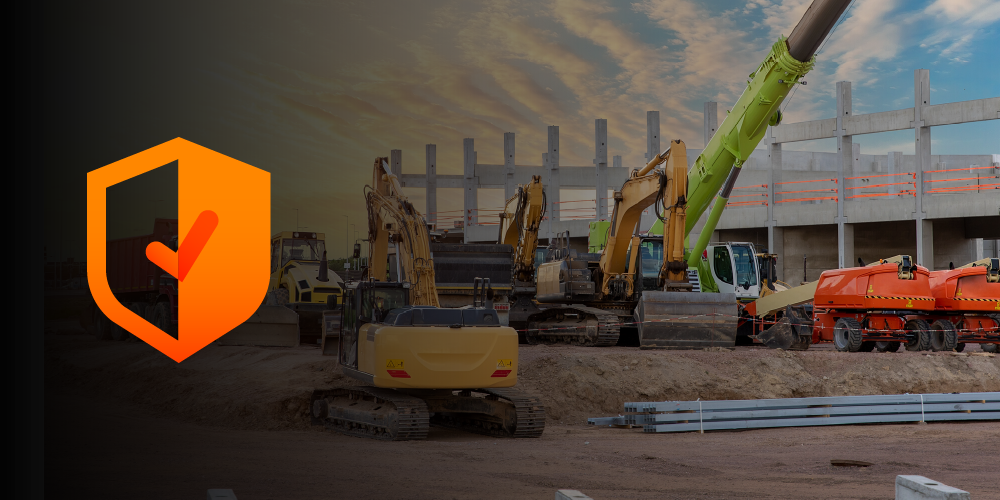— 5 min read
Construction Insurance: 9 Types of Policies Contractors Need to Know
Last Updated Aug 14, 2024
Last Updated Aug 14, 2024

Construction is a risky business. Everyone who works on a project or has a stake in the property has a financial investment in the success of the job. To mitigate the risk of loss, there are a variety of types of insurance available to protect construction companies, property owners, and other stakeholders from losses incurred during a building project or in the regular course of business.
While some types of insurance are common in other industries, many policies are created to mitigate risks that are specific to the construction industry. Below, we’ll cover the most common types of insurance in construction and what each policy covers.
Table of contents
What is construction insurance?
Construction insurance is a category of insurance policies that can provide coverage for contractors, property owners, and projects under construction. Different types of policies are used to protect businesses and owners from specific risks or losses.
9 common types of construction insurance
While there are a variety of insurance policies available under this category, these are the nine types of insurance that are most commonly used in the construction industry.
1. Builders risk insurance
Builder’s risk insurance (also called course of construction insurance) is property insurance that protects buildings while they are under construction, either during a remodel or new construction. It helps mitigate the risk of certain damages during the construction process. It can be purchased by the project owner or general contractor and covers all parties on the project.
2. General liability insurance
Contractor general liability insurance helps protect against "general" claims by third parties. These claims typically involve bodily injuries and property damage that result from a contractor's products, services, operations, but they can include advertising claims involving defamation. They are in place to ensure businesses operate in a safe manner, so some claims arise out of negligence, careless business practices or unavoidable accidents. They protect contractors by preserving business assets and covering damages up to the policy limits for covered claims.
In many states, contractors are required to hold a certain amount of general liability coverage in order to get a contractors license.
3. Errors & omissions/professional liability insurance
Errors and omissions insurance (E&O) In a chosen profession, one must adhere to certain standards and best practices in a given industry. If a client believes a mistake was made, they can make a claim that an individual did not live up to or meet the standards set by the industry. E&O (or professional liability insurance) is in place to protect an individual should a claim be made about an error or mistake made in the course of conducting business or an omission where there is an accusation that a person failed to do something.
4. Inland marine insurance
Inland marine insurance is a type of business insurance that covers materials, tools, and equipment while they are in transit to and from a jobsite over land. This coverage is meant to help protect business property that is movable or used for transportation purposes.
While a builders risk policy covers equipment and materials at the jobsite, inland marine insurance is used to extend that coverage to business property while it's on the road.
5. Commercial auto insurance
A commercial auto insurance policy covers company-owned vehicles and equipment from damages from motor vehicle accidents, theft, and vandalism. This type of coverage is required in every state when the company purchases a vehicle for employee or owner use.
6. Workers' compensation insurance
Workers' compensation insurance protects contractors against losses caused by work-related accidents or illnesses. It also provides the employee with benefits to compensate for lost work and wages.
In most states, workers' compensation coverage is required for businesses with more than a certain number of employees (the actual number varies by state). Many states allow contractors to operate a “self-insured” plan, as long as they meet the state requirements and obtain approval.
Some states operate a state insurance fund from which contractors can purchase workers' compensation coverage. While state-operated funds can be more expensive than commercial providers, they can be a viable option for contractors who can’t find coverage elsewhere.
7. Pollution liability insurance
Pollution liability insurance policies cover claims for bodily injury and property damage caused by hazardous waste or materials released during a company’s business operations. Contractors that frequently work with or dispose of hazardous waste often need this type of coverage.
This type of insurance covers contractors while working on a job and once the project is complete. In other words, if there is a problem with hazardous waste materials after the job is finished, this policy protects the contractor from liability issues.
8. Subcontractor default insurance
Subcontractor default insurance (SDI) protects a contractor in the event one of their subcontractors fails to perform according to their agreement. Contractors may purchase it as an alternative to a performance bond, or provide additional protection beyond what a surety bond covers.
On large commercial or public projects, general contractors are often responsible for managing dozens or hundreds of subcontractors and sub-subcontractors. The larger the project, the greater the risk that one or multiple subs will fail to complete their work on time or according to the specifications.
9. Wrap insurance (OCIP/CCIP)
Wrap insurance (also known as a “wrap-up”) provides liability coverage for an entire construction project or multiple jobs. Because it covers everyone on the job, contractors and subs may not need to provide their own general liability coverage. The policy can be written to include both general liability and workers compensation coverage (known as “bi-line”), though GL-only policies are becoming increasingly common.
A wrap policy is typically purchased as an OCIP or CCIP. An OCIP is purchased by the owner, while a CCIP is purchased by the general contractor. Regardless of who purchases the policy, both generally provide the same coverage.
Reducing risk in construction
Insurance coverage is available for nearly any type of risk in the construction industry. While some policies are required by the state or for particular kinds of projects, others can be tailored to mitigate specific risks faced by a contractor. Buying insurance may look costly from the outset, but it can quickly pay for itself with just the first claim.
Was this article helpful?
Thank you for your submission.
95%
5%
You voted that this article was . Was this a mistake? If so, change your vote here.
Scroll less, learn more about construction.
Subscribe to The Blueprint, Procore’s construction newsletter, to get content from industry experts delivered straight to your inbox.
By clicking this button, you agree to our Privacy Notice and Terms of Service.
Categories:
Tags:
Written by
Dawn Killough
34 articles
Dawn Killough is a writer with over 20 years of experience in construction, having worked as a staff accountant, green building advisor, project assistant, and contract administrator. She holds a BA in Psychology and MS in Conflict Resolution, both from the University of Portland. She shares fundamental green building strategies and techniques in her book, Green Building Design 101. Dawn lives in Portland, Oregon.
View profileExplore more helpful resources

What is Equipment Floater Insurance for Contractors?
Most contractors rely on tools and equipment to complete construction projects. But if something happens to those items, they can be expensive to replace. Contractors can benefit from purchasing an...

Construction Equipment Rental Insurance: How & Where to Get Coverage
Contractors and construction businesses that rent equipment should consider getting construction equipment rental insurance. This type of insurance covers the cost of replacing rented tools and equipment if they get...

Understanding Construction Insurance: Actuarial vs. Underwriting Factors
Determining the price of construction insurance is complex, with much of the work happening behind the scenes. Most construction companies interact primarily with an insurance broker or agent, but actuaries...

Construction Insurance Pricing: What Determines the Cost of Insurance?
Construction is a risky and litigious business, and insurance can help mitigate the risks for builders and owners. Construction insurance is a valuable and frequently required tool, so understanding how...